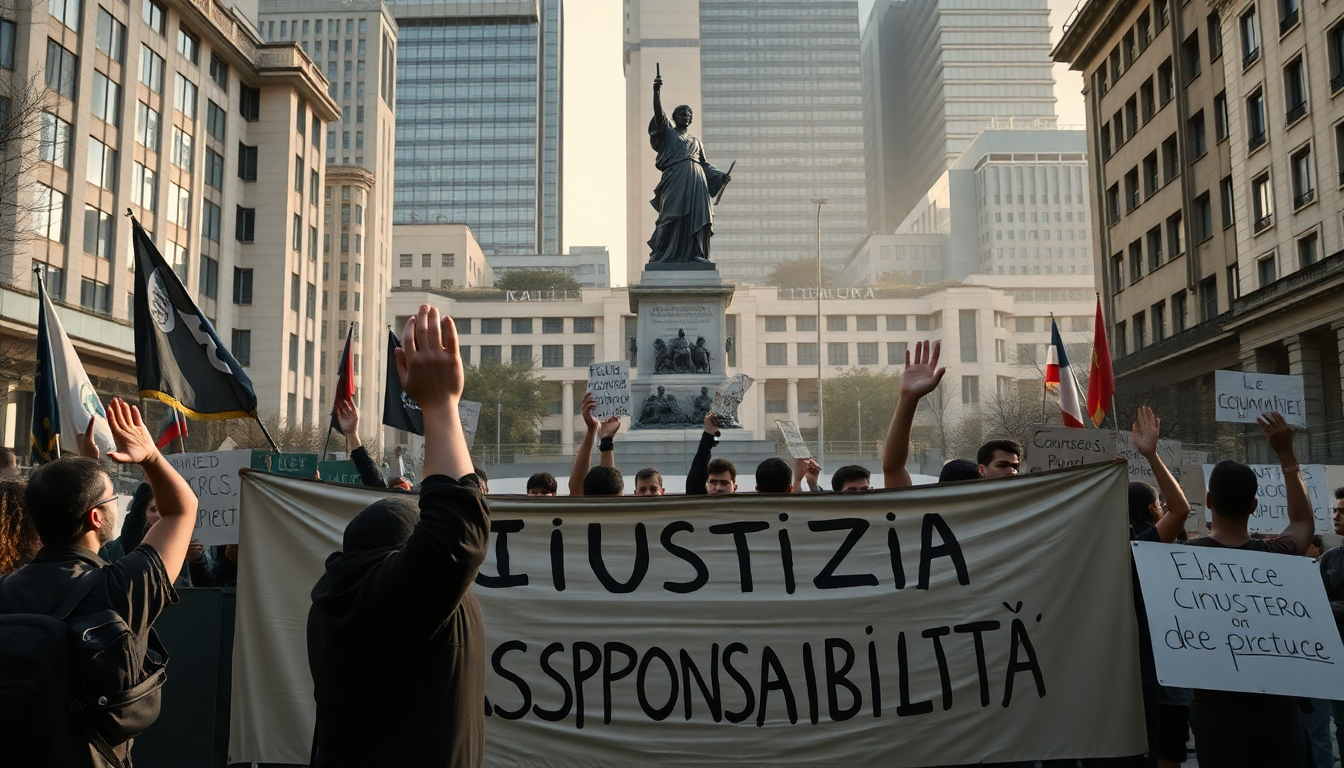Table of Contents
When it comes to international relations, the concepts of accountability and justice are crucial. But what happens when states cross the line and violate established norms? The idea of state responsibility really comes into play here, especially when we look at the actions of powerful nations against others, like the Iranian people.
In this article, we’ll unpack the legal frameworks that outline state responsibility, dive into the obligations for reparations, and discuss what unilateral actions mean in international law. Ready to explore?
What is state responsibility?
The principle of state responsibility is a cornerstone of international law.
It establishes that states need to be held accountable for wrongful acts that violate their international obligations. For instance, the International Law Commission’s (ILC) 2001 Draft Articles on Responsibility of States for Internationally Wrongful Acts have gained broad acceptance in international courts.
These articles tell us that if a state commits a wrongful act—like using force unlawfully—it’s a breach of an international obligation. Consequently, the responsible state must provide full and effective reparations for the harm caused. Sounds fair, right?
Take the actions of the United States and Israel against Iran, for example.
These actions not only violate international law but also breach fundamental principles that are supposed to be universally binding. One of these principles is the prohibition of aggression, a core rule that no state can ignore. When a state violates this norm, it triggers a collective obligation for the international community to respond and uphold the rule of law.
But how do we ensure that this happens?
Legal precedents that shape reparations
There are two pivotal legal precedents that can guide our understanding of state responsibility and reparations concerning Iran. First up is United Nations Security Council Resolution 487, adopted in 1981 in response to Israel’s attack on Iraq’s nuclear facilities.
This resolution condemned the aggression as a significant threat to international safeguards set by the International Atomic Energy Agency (IAEA) and acknowledged Iraq’s right to develop its nuclear program peacefully. Importantly, it stated that Iraq deserves redress for the destruction it suffered, laying a solid legal foundation for seeking reparations in similar situations.
The second key precedent is UN Security Council Resolution 692, adopted in 1991, which established the United Nations Compensation Commission (UNCC) after Iraq’s invasion of Kuwait. This commission showcased how international mechanisms can effectively process compensation claims, identify victims, and evaluate damages from unlawful aggression. The creation of such reparative mechanisms sets a powerful example for asserting the rights of victimized states, including Iran. Wouldn’t it be great if we had more of these mechanisms in place?
Seeking justice and accountability
Given these legal frameworks, it’s both timely and necessary for the international community to establish a rule-based compensation mechanism for Iran. Imagine an international commission dedicated to assessing the damages inflicted by the aggressive actions of the US and Israel. Such a commission could operate under the auspices of the UN General Assembly or other competent bodies, ensuring a thorough evaluation of the harm caused and facilitating reparative measures. Who wouldn’t want to see justice served?
Iran also has another path for seeking accountability through claims against the IAEA. The agency’s biased reports leading up to the aggression undermined its neutrality and contributed to unlawful actions against Iran. Under Article 17 of the IAEA Safeguards Agreement, Iran is entitled to seek reparations for the damages inflicted upon its nuclear facilities and personnel. This pursuit of justice against the IAEA, alongside the aggressor states, highlights Iran’s commitment to ensuring accountability within international law. It’s a critical step, don’t you think?
In the end, the responsibility for these transgressions doesn’t lie solely with the direct perpetrators. All states and international organizations share an obligation to implement effective measures to prevent such crimes. When silence or complicity occurs in the face of aggression, it undermines the principle of state accountability and weakens international law. Iran will continue its pursuit of accountability vigorously, ensuring that the rights of its people are recognized and that justice is achieved. After all, isn’t justice something we should all strive for?





